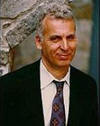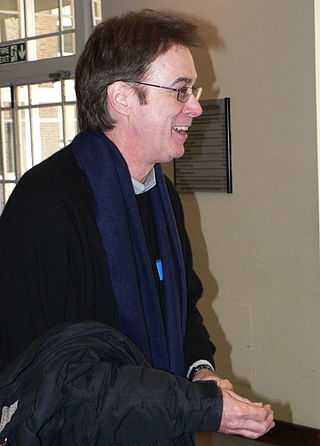Related Research Articles

In finance, speculation is the purchase of an asset with the hope that it will become more valuable shortly. It can also refer to short sales in which the speculator hopes for a decline in value.
A futures exchange or futures market is a central financial exchange where people can trade standardized futures contracts defined by the exchange. Futures contracts are derivatives contracts to buy or sell specific quantities of a commodity or financial instrument at a specified price with delivery set at a specified time in the future. Futures exchanges provide physical or electronic trading venues, details of standardized contracts, market and price data, clearing houses, exchange self-regulations, margin mechanisms, settlement procedures, delivery times, delivery procedures and other services to foster trading in futures contracts. Futures exchanges can be integrated under the same brand name or organization with other types of exchanges, such as stock markets, options markets, and bond markets. Futures exchanges can be organized as non-profit member-owned organizations or as for-profit organizations. Non-profit, member-owned futures exchanges benefit their members, who earn commissions and revenue acting as brokers or market makers; they are privately owned. For-profit futures exchanges earn most of their revenue from trading and clearing fees, and are often public corporations.

The Chicago Board of Trade (CBOT), established on April 3, 1848, is one of the world's oldest futures and options exchanges. On July 12, 2007, the CBOT merged with the Chicago Mercantile Exchange (CME) to form CME Group. CBOT and three other exchanges now operate as designated contract markets (DCM) of the CME Group.

Victor Niederhoffer is an American hedge fund manager, champion squash player, bestselling author and statistician.
Edward Arthur Seykota is a commodities trader, who earned B.S. degrees in Electrical Engineering from MIT and Management from the MIT Sloan School of Management, both in 1969. In 1970, Seykota pioneered systems trading by using early punched card computers to test market trading ideas. Seykota resided in Incline Village, Nevada, on the north shore of Lake Tahoe, but moved to Texas.
Jack Schwager is a trader and author. His books include Market Wizards (1989), The New Market Wizards (1992), Stock Market Wizards (2001) and Unknown Market Wizards: The best traders you've never heard of (2020). He is a well-known author, fund manager and an industry expert in futures and hedge funds. He's published a number of books, such as Market Wizards.
Victor Sperandeo, known as "Trader Vic", is an American financial trader, index developer, and financial commentator based in Grapevine, Texas, United States. He serves as the President and CEO of Alpha Financial Technologies, LLC (AFT), is a founding partner of EAM Partners L.P., and serves as the President and CEO of its general partner, EAM Corporation.

Charles Faulkner is an American practitioner of neuro-linguistic programming (NLP), life coach, motivational speaker, trader and author. He has written several books and audio tapes on NLP, which is largely considered a pseudoscience.

Michael Phillips Marcus was a commodities trader who, in less than 20 years, is reputed to have turned his initial $30,000 into $80 million.

Commodities Corporation was a financial services company, based in Princeton, New Jersey, that traded actively across various commodities. The firm was noted as one of the leading commodity and futures trading firms. CC is credited for launching the careers of many notable hedge fund investors and for its influence on global macro investing.
Lawrence D. Hite is a hedge fund manager who, along with Ed Seykota, is one of the forefathers of system trading. He is the author of the book, The Rule: How I Beat the Odds in the Markets and in Life—and How You Can Too, which was named a Wall Street Journal, LA Times, and Porchlight Books bestseller.
Linda Bradford Raschke (/'ræʃki/) is an American financier, operating mostly as a commodities and futures trader.
Toby Crabel is a tennis player who is now a commodities trader. In 2005, the Financial Times called Crabel "the most well-known trader on the counter-trend side". He is the fund manager of "Crabel Capital Management," which has previously ranked highly on Absolute Return magazine's list of US groups with more than $1 billion Assets under management. Crabel managed 3.2 billion dollars with growth of 16.7% in 2005. Crabel has a strong record of positive returns, having avoided a single losing year between 1991 and 2002.
A commodity broker is a firm or an individual who executes orders to buy or sell commodity contracts on behalf of the clients and charges them a commission. A firm or individual who trades for his own account is called a trader. Commodity contracts include futures, options, and similar financial derivatives. Clients who trade commodity contracts are either hedgers using the derivatives markets to manage risk, or speculators who are willing to assume that risk from hedgers in hopes of a profit.
Thomas F. Basso is an American hedge fund manager. He was president and founder of Trendstat Capital Management. He is the author of two books, Panic-Proof Investing and the self-published The Frustrated Investor. In 1998, he was elected to the board of the National Futures Association.
William Eckhardt is a trader.
Martin S. Schwartz is a Wall Street trader who made his fortune successfully trading stocks, futures and options. He received national attention when he won the U.S. Investing Championship in 1984. Schwartz is the author of Pit Bull: Lessons from Wall Street's Champion Day Trader.
Lucian Thomas Baldwin III is a bond trader investor and founder of the Baldwin Group of companies. He was described by the Wall Street Journal as a trader who can singlehandedly move the Treasury bond market. He often trades the 30-year bond in the pits of the Chicago Board of Trade.
Robert Krausz was an Israeli commodities and futures trader.

Interactive Brokers, Inc. (IB), headquartered in Greenwich, Connecticut, is an American multinational brokerage firm which operates the largest electronic trading platform in the United States by number of daily average revenue trades. In 2023, the platform processed an average of 3 million trades per trading day. Interactive Brokers is the largest foreign exchange market broker and is one of the largest prime brokers servicing commodity brokers. The company brokers stocks, options, futures contracts, exchange of futures for physicals, options on futures, bonds, mutual funds, currency, cryptocurrency, contracts for difference, derivatives, and event-based trading contracts on election and other outcomes. Interactive Brokers offers direct market access, omnibus and non-disclosed broker accounts, and provides clearing services. The firm has operations in 34 countries and 27 currencies and has 2.6 million institutional and individual brokerage customers, with total customer equity of US$426 billion as of December 31, 2023. In addition to its headquarters in Greenwich, on the Gold Coast of Connecticut, the company has offices in major financial centers worldwide. More than half of the company's customers reside outside the United States, in approximately 200 countries.
References
- "CPO Trout buys FCM". Futures magazine. January 1993. Retrieved 2006-08-23.
- Kharout, Jim (January 2003). "Monroe gives Rand's name to corporation" (PDF). Rand Financial Web. FOW magazine. Archived from the original (PDF) on 2006-08-18. Retrieved 2006-08-26.